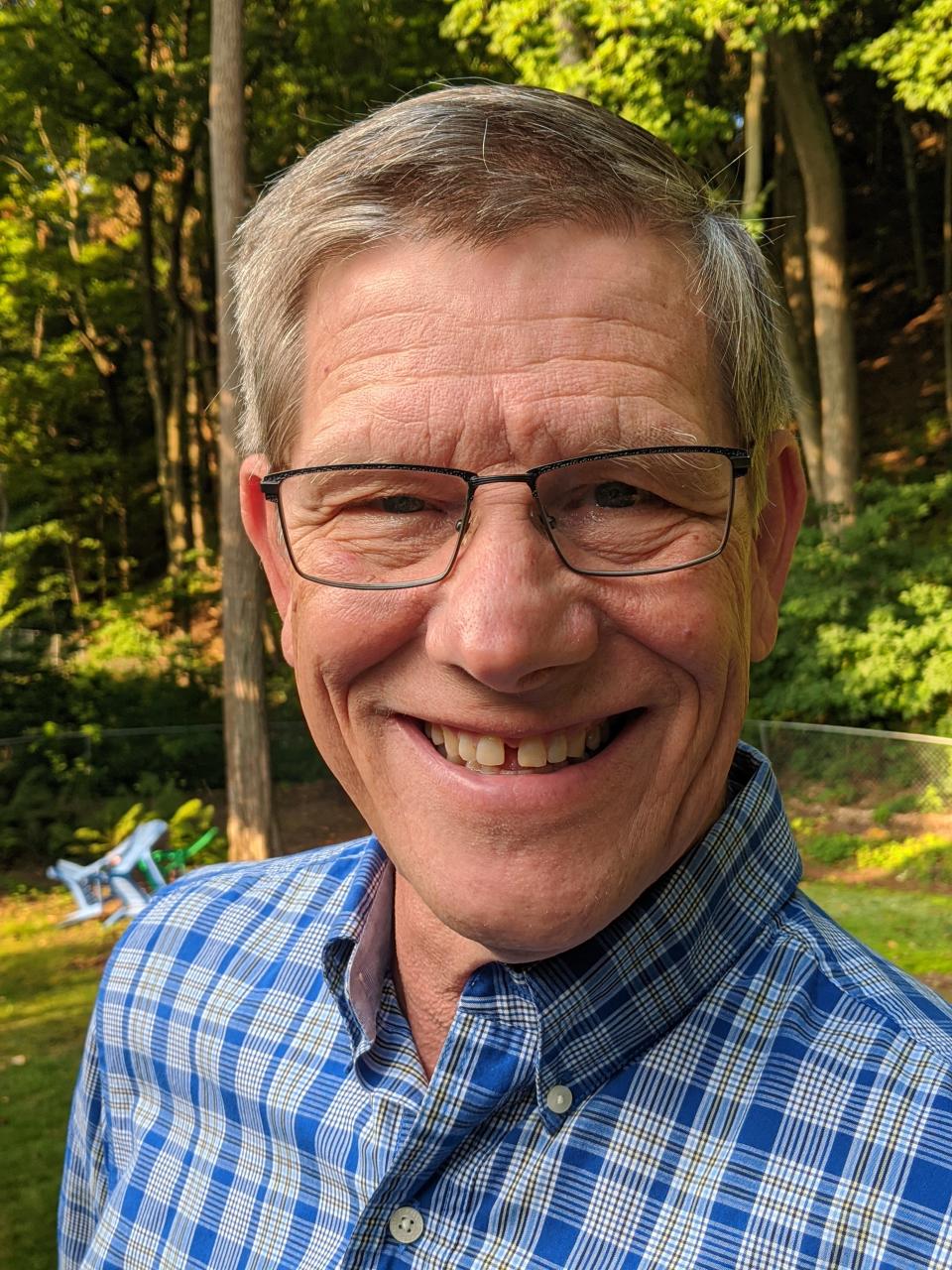Mark Smith: You can make a difference on this planet
“Over 1,000 private jets flew to Las Vegas for the Super Bowl. I recycle yogurt cup lids.” ~ The Original Church of Sarcasm Group (Facebook)
Sometimes this is exactly how I feel, and I suspect many of us feel — can we really make a difference in caring for our precious earth? Fortunately, we can! Here are a few ideas you might think about this coming year using the old adage — reduce, reuse, and recycle.
Recycle: It is a common myth that items put out for recycling don’t actually get recycled. It seems that the number varies depending on the facility doing the recycling. The best recycling rate I found was a facility in Vermont where 93% of items in their recycle stream actually get recycled. The average across the country seems to run in the 75-80%. Recycling does make a difference and your efforts are worthwhile.

Reduce by keeping your electronic devices a little longer. Research has shown that extending the lifespan of smartphones and other electronic devices by just one year can save as much carbon emissions as taking 2 million cars off the road each year. Something to consider.
Reduce by eating less meat. According to a new comprehensive study, the single best thing you can do for the planet is to eliminate meat and dairy from your diet. Specifically, plant-based diets reduce food emissions by up to 73% depending on where you live. If we only ate a plant-based diet, we would need 7.7 billion less acres of farmland. We can all “help protect the rain forest, reduce water and fertilizer use, and improve biodiversity”.
Reduce and recycle by looking for ways to reduce your plastic use and recycle when you do use plastic. By 2040, up to 19% of global greenhouse gas emissions will stem from plastics. Individually, we have an enormous opportunity to reduce the use of and recycling the plastics we use. There are many opportunities to decrease our plastic use, here are just a couple you might consider.
60 million plastic water bottles are thrown away each day in America. When comparing tap water to bottled water the conclusion by Medical News Today was: “Overall, it appears that tap water is a better option in most cases. It is convenient, free, or inexpensive, and has much less of an environmental impact than bottled water. Tap water is also just as safe as bottled water, and most people will not be able to tell the difference in taste.” It’s worth asking yourself: “Why am I paying a massive conglomerate like Nestle to put the water we all own into a plastic bottle when I can use a reusable bottle or a glass from the cupboard?”
Stop using plastic bags. There are currently 12 states and 99 countries that ban plastic bags. A report released earlier this year concluded that “plastic bag bans work.” It is estimated that, on average, plastic bag bans can eliminate almost 300 single-use plastic bags per person, per year. Start using those reusable grocery bags you stopped using during the pandemic.
I’m confident you can think of many more ways you could reduce the amount of plastic you use — give it some thought.
When it is time to dispose of your household hazardous waste don’t put it in the trash, don’t flush it down the toilet, and don’t pour it into the street drain. Instead, find a sustainability center near you. Ottawa County residents have access to four Environmental Sustainability Centers. They will accept a wide variety of items including household products, hazardous waste, electronics and scrap metal. More information can be viewed at their website, miottawa.org/Health/OCHD/ES/hazardous.htm.
Educating yourself is always a good idea. Think about attending the 17th Earth Day Lakeshore Celebration, Saturday, April 20. The Earth Day fair is open 1-4 p.m. in Grand Haven Central Park Place. There you can visit a variety of booths with sustainable products, demonstrations, and information.
Look for volunteer opportunities. Volunteers play a vital role in promoting sustainable development and preserving the natural environment. Additionally, there are numerous personal benefits. A variety of studies have demonstrated that volunteering promotes longevity, improves cognition and mental health, improves social relationships, and creates higher levels of happiness and life satisfaction. Volunteering is good for you and good for the earth.
Now is not the time to give up on the planet. Thomas A. Edison noted: “Our greatest weakness lies in giving up. The most certain way to succeed is always to try just one more time.”
— Mark Smith resides in Grand Haven.
This article originally appeared on The Holland Sentinel: Mark Smith: You can make a difference on this planet
